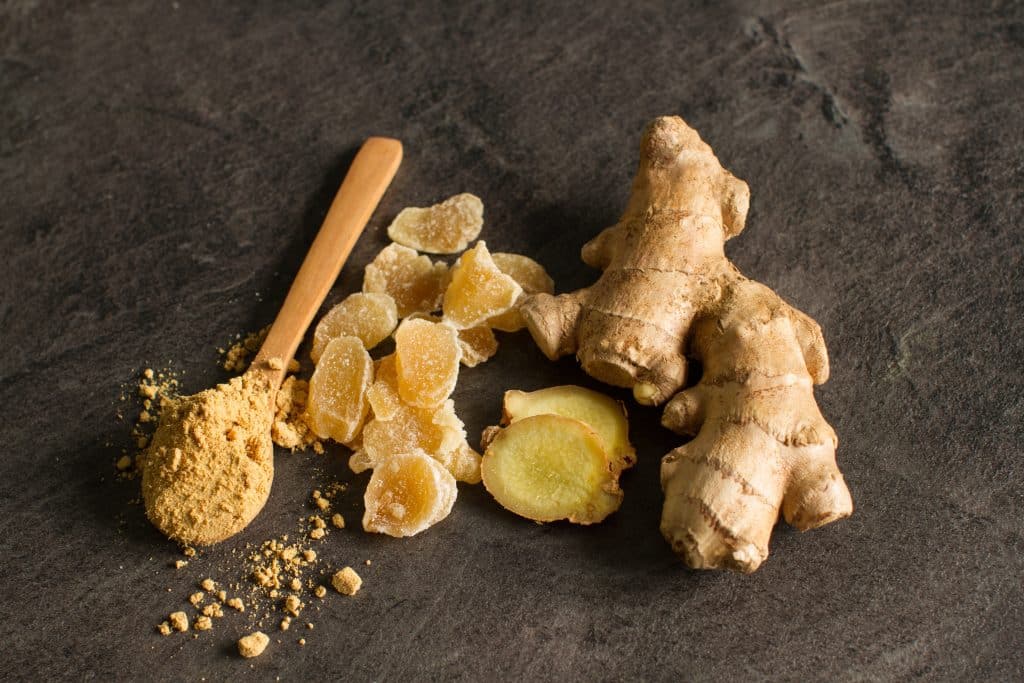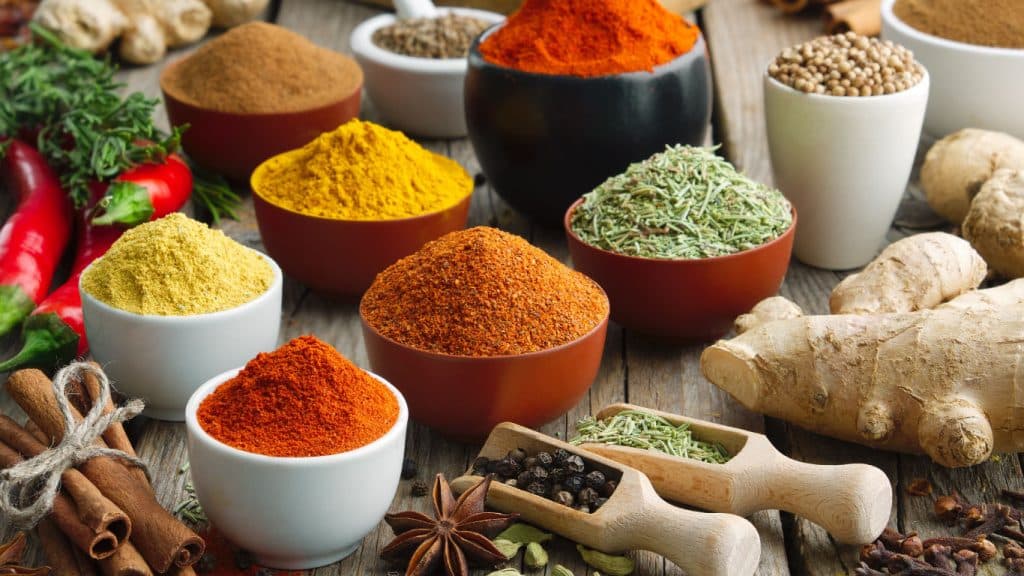Introduction to Ginger: A Little Root with Big Benefits
Ginger is a small but mighty root that has been cherished for thousands of years. It might not look like much—just a knobby, brown root—but inside, it’s packed with powerful nutrients and natural compounds that can work wonders for your health. Whether you’re sipping ginger tea to soothe your tummy or adding a zing to your favorite stir-fry, ginger is a delicious way to boost your well-being.
What is Ginger?
Ginger comes from the root of the ginger plant, known scientifically as *Zingiber officinale*. It’s a close relative to turmeric, cardamom, and galangal, all of which are used in cooking and medicine. You can find ginger fresh, dried, powdered, or even pickled. It has a spicy, warm flavor that adds a punch to both sweet and savory dishes.
A Brief History of Ginger Use
People have been using ginger for thousands of years! It first grew in Southeast Asia, where it became a popular spice and medicine. Ancient Chinese and Indian healers used ginger to treat everything from headaches to colds. Ginger’s fame spread along trade routes, and soon it was being used all around the world for its health benefits and delicious flavor.
Ginger in Modern Medicine
Today, ginger is still celebrated for its health benefits. Scientists have discovered that ginger contains compounds called gingerols and shogaols, which have strong anti-inflammatory and antioxidant effects. These natural chemicals help explain why ginger is so good at soothing upset stomachs, reducing pain, and fighting off germs.
The Health Benefits of Ginger
Ginger isn’t just tasty—it’s also a superfood! Here are some of the ways ginger can help keep you healthy:
Ginger for Digestion
Ever had a tummy ache? Ginger might be just what you need. It helps your stomach digest food better and can ease nausea, bloating, and gas. This is why people often sip ginger tea or chew ginger candies when they feel queasy. Ginger can also help with more serious digestive problems like indigestion and even help your body absorb nutrients better.
Ginger as a Cold and Flu Fighter
If you’re feeling under the weather, ginger might help you feel better faster. Ginger has natural compounds that can help your body fight off viruses and bacteria. It’s also great at reducing symptoms like sore throats and coughing. A warm cup of ginger tea can soothe your throat and help clear up congestion, making it a go-to remedy during cold and flu season.
Ginger’s Role in Reducing Inflammation
Inflammation is your body’s way of fighting off things that can make you sick, like germs or injuries. But too much inflammation can be bad for your health. Ginger’s natural compounds can help reduce inflammation in your body, which might help with conditions like arthritis, heart disease, and other chronic issues.
Ginger and Pregnancy: A Mom-to-Be’s Best Friend
Ginger is like a superhero for many moms-to-be. Pregnancy can bring about some uncomfortable symptoms, and ginger is a natural way to help ease those troubles. Here’s how ginger can be a helpful friend during pregnancy.
Easing Morning Sickness
Morning sickness is one of the most common complaints during pregnancy, especially in the first trimester. Ginger has been shown to help reduce nausea and vomiting, making it a go-to remedy for many pregnant women. Whether you sip on ginger tea or nibble on a ginger cookie, this root can help calm that queasy feeling.
Supporting Healthy Digestion
Pregnancy can slow down digestion, leading to bloating, gas, and indigestion. Ginger can help by speeding up digestion and reducing these uncomfortable symptoms. A little ginger in your diet can make meals easier to digest and help you feel more comfortable.
Boosting Immunity During Pregnancy
Keeping your immune system strong during pregnancy is important for both you and your baby. Ginger has natural antibacterial and antiviral properties that can help protect you from colds and other illnesses. Adding ginger to your diet can give your immune system a little extra support when you need it most.
Fun and Easy Ginger Recipes
Ginger isn’t just healthy—it’s also delicious! Here are a few fun and easy ways to add more ginger to your meals.
Ginger Honey Tea
This soothing tea is perfect for when you’re feeling under the weather or just want something warm and comforting.
INGREDIENTS
- 1 inch of fresh ginger, sliced
- 1 tbsp of honey
- 1 cup of hot water
DIRECTIONS
1. Place the ginger slices in a cup.
2. Pour hot water over the ginger and let it steep for 5-10 minutes.
3. Remove the ginger slices, stir in the honey, and enjoy!
Ginger Carrot Soup
This bright and flavorful soup is a great way to warm up on a chilly day.
INGREDIENTS
- 4 large carrots, peeled and chopped
- 1 inch of fresh ginger, grated
- 1 onion, chopped
- 2 cups of vegetable broth
- Salt and pepper to taste
DIRECTIONS
1. In a large pot, sauté the onion and ginger until fragrant.
2. Add the carrots and broth, then bring to a boil.
3. Reduce the heat and let it simmer until the carrots are tender.
4. Use a blender to puree the soup until smooth. Season with salt and pepper, and enjoy!
Zesty Ginger Stir-Fry
This quick and easy stir-fry is perfect for a busy weeknight dinner.
INGREDIENTS
- 1 inch of fresh ginger, minced
- 2 cloves of garlic, minced
- 1 bell pepper, sliced
- 1 cup of broccoli florets
- 1 cup of sliced carrots
- 2 tbsp of soy sauce
- 1 tbsp of olive oil
DIRECTIONS
1. Heat the olive oil in a large pan over medium heat.
2. Add the ginger and garlic, and sauté until fragrant.
3. Add the bell pepper, broccoli, and carrots, and stir-fry until the vegetables are tender-crisp.
4. Stir in the soy sauce and cook for another minute. Serve hot over rice or noodles.
How to Add More Ginger to Your Diet
Ginger is not only healthy but also incredibly versatile. You can add it to a wide variety of dishes to boost both flavor and nutrition. Here are some easy and creative ways to incorporate more ginger into your daily meals.
Fresh vs. Dried Ginger
Ginger comes in different forms, and each one has its own unique flavor and uses. Fresh ginger is spicy and juicy, perfect for adding a kick to smoothies, teas, and stir-fries. Dried ginger, on the other hand, has a more concentrated flavor and works well in baking, such as gingerbread cookies or spiced muffins. Both forms of ginger are packed with health benefits, so you can choose whichever suits your recipe best.
Ginger in Cooking and Baking
Ginger is a star in both savory and sweet dishes. In cooking, you can add fresh ginger to soups, stews, and marinades. It pairs wonderfully with garlic, soy sauce, and honey, making it a staple in many Asian recipes. For baking, dried ginger adds warmth and spice to cookies, cakes, and even breads. A little ginger in your recipes can make everyday meals and treats more exciting.
Creative Ways to Enjoy Ginger Daily
If you want to get a regular dose of ginger, there are plenty of fun ways to do it. Start your day with a ginger-infused smoothie by blending fresh ginger with your favorite fruits and yogurt. You can also make a refreshing ginger lemonade by mixing ginger juice with lemon juice, water, and a bit of honey. If you enjoy snacks, try adding a sprinkle of dried ginger to roasted nuts or popcorn for a spicy twist.
Precautions and When to Be Careful with Ginger
While ginger is generally safe and beneficial, it’s important to use it in moderation and be aware of certain precautions.
How Much Ginger is Too Much?
For most people, consuming 1-2 grams of ginger per day is considered safe. However, eating too much ginger can lead to side effects like heartburn, gas, or an upset stomach. If you’re new to using ginger, start with small amounts to see how your body reacts.
When to Avoid Ginger
Certain people should be cautious when using ginger. If you’re taking blood thinners or have a bleeding disorder, ginger might increase the risk of bleeding. Pregnant women should also consult their healthcare provider before taking large amounts of ginger, even though small amounts, like those used in cooking, are generally safe.
Conclusion: Embracing the Power of Ginger
Ginger is truly a magical root that brings both flavor and health benefits to the table. Whether you’re looking to soothe a stomach ache, fight off a cold, or simply add some zest to your meals, ginger has got you covered. With so many easy ways to incorporate it into your diet, there’s no reason not to enjoy this spicy superhero every day. Give ginger a try, and let it work its magic on your health and happiness!
FAQs
1. Can ginger help with weight loss?
– Ginger can help with weight loss by boosting metabolism and reducing appetite. Drinking ginger tea before meals may help you feel fuller and eat less.
2. Is ginger safe for children?
– Yes, ginger is safe for children in small amounts. It can help with digestion and soothe an upset stomach, but always check with a pediatrician before giving it to young kids.
3. Can I use ginger to relieve muscle pain?
– Ginger has anti-inflammatory properties that may help reduce muscle pain and soreness, especially after exercise. Drinking ginger tea or using ginger in cooking can support muscle recovery.
4. How long does fresh ginger last?
– Fresh ginger can last up to three weeks in the refrigerator if stored properly. Keep it in a plastic bag or wrap it in a paper towel to maintain its freshness.
5. Can I grow ginger at home?
– Yes, ginger is easy to grow at home! You can plant a piece of fresh ginger root in a pot and keep it in a warm, sunny spot. With some care, you’ll have your own supply of fresh ginger.



